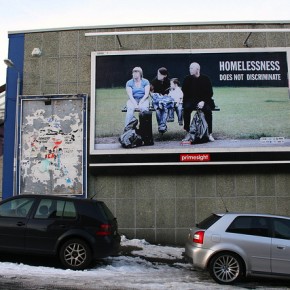The British workplace must become more accommodating to Muslim women. So went the title of a Reyhana Patel op-ed piece, in Independent Voices. Pretty common sense, no? Nothing to disagree with there. Well, not to everyone. The article was in fact attracting considerable attention from the most dubious of quarters. The commentary was quite awful.
As a white, straight male brought up well out of god’s earshot, I don’t pretend to understand the impact of the viciousness with which many radical and Muslim women writers are bombarded. Patel’s journalism, her position on recent wars, and her concern for the plight of Muslims at home and abroad are just and admirable. I appreciate her polemical style and humanitarian approach, and emulate it where I can. It’s truly inspiring. The Independent’s beautifully lettered Laurie Penny, however much some of her politics grate with me, is often equally pilloried with the same kind of idiot, ad hominem depravity to which Miss Patel is being subjected by, amongst others, people with Union Jack bunting on their Twitter profiles.
Nonetheless, I feel that Patel was elegant but wrong on the topic she broached, arguing that the British workplace “needed to become more accommodating to Muslim women.” A report she cites in her piece to argue her case rightly highlights the blight of Islamophobia, itself a vile, lubricating adjunct of our foreign adventurism. But her article complains at a lack of focus on religious needs, suggesting that if workplaces adhered to these religious rules we could tap the undeniable resource of highly educated Muslim women. Her mistake, in my view, is in not recognizing that we are in the grip of a crisis of capitalism: a recession which neoliberal dogma has gifted us. A lack of jobs, coupled to underemployment for those actually working, highlights that capitalism is only egalitarian in that it impinges on everyone bar the elite.
Class, not religion, is the issue. You might think otherwise, given that the world brims with weaponizers of secularism in the Hitchens mould, and to a lesser extent the intermittently surfacing Morlocks of the far-right. These people have been handed a gift by Miss Patel’s argument, and I believe it plays into their dullard’s narrative of ‘Islamification’. The backfired EDL Twitter hash tag of Creeping Sharia is rightly mocked and the fascists have been battered for the moment – here, if not elsewhere in crisis-hit Europe. However, political savvy dictates that we ought not to polish the jackboots they’d stomp us with.
An invite to the pub is not an insult, it is an attempt at goodwill and there is a mild swipe at non-Muslim women in Reyhana’s piece. If Muslim women are made to suffer for the way they dress, for example, then the idea that non-Muslim women should bare skin and flaunt curves to get ahead is surely a parallel oppression. Muslim and non-Muslim women – both punch-bags of austerity – are not adversaries but comrades, in the old Communist sense, though I dislike so hackneyed a term. Their aims are the same, and any program for improvement must first dominate this shared ground as the starting point, dragging male workers alongside. To counter-pose struggles smacks of a naiveté I loathe to attribute to this writer.
On the subject of religion in the workplace, Britain’s secular society must be taken into account. I mean ‘secular’ in the sense of an absence of religion in the organisation of our lives, not the populist anti-religious bigotry which is currently in fashion. Does this view make me an Islamophobe? As an ex- soldier who refused to serve a second term in Afghanistan, I hope my decision to not involve myself further in the killing of Muslims, or the occupation of their countries, spares me the accusations.
But lay your charges as you will. I’ve been vituperatively called a Muslim-lover before, and accept that charge joyfully. I hold my atheism no less militant for being tolerant, and I recognise that as a progressive and an anti-imperialist, I need Muslims, Jews, Christians and everyone else. I reject the divisions handed down to buttress an imperial desire to make gains by hurting Muslims.
However, for me, this country is not secular enough. In Britain, we have a Queen at the head of the church, apparently by virtue of lingering divine entitlement. I’d rather have Reyhana Patel as our head of state any day, whatever her relationship with a supposed god. This said, respect for different cultural sensibilities does not mean I profoundly shape my life to suit them, even if I could, given that wages, break times, living standards, public expenditure, which prejudices are in vogue, all derive from the status quo, and are best challenged collectively.
Identity politics is what Miss Patel’s argument is caught up in. Such political currents, unfortunately, have no binding answers to the issues she has raised. We are subject to employers who are pliable to profit, not accommodating those who keep them wealthy.
In my view, this is not the time to lament or talk up division, especially in matters concerning religion. The issues faced in the workplace and beyond it are not separate, and can only be resolved by women and men of all backgrounds fighting in concert. To ignore them plays into the hands of the politicians and industrialists who profit from us worrying at each other.
To channel the late Howard Zinn, it would be as tragic for us to turn on each other as to be defeated altogether.
Photograph courtesy of ChrisGoldNY. Published under a Creative Commons license.






I found this line to be very powerful and thought provoking: “respect for different cultural sensibilities does not mean I profoundly shape my life to suit them”.
Great article. Well stated and interesting. It definitely has left me with some thoughts about where my own values lie on the topic of religion in the workplace.